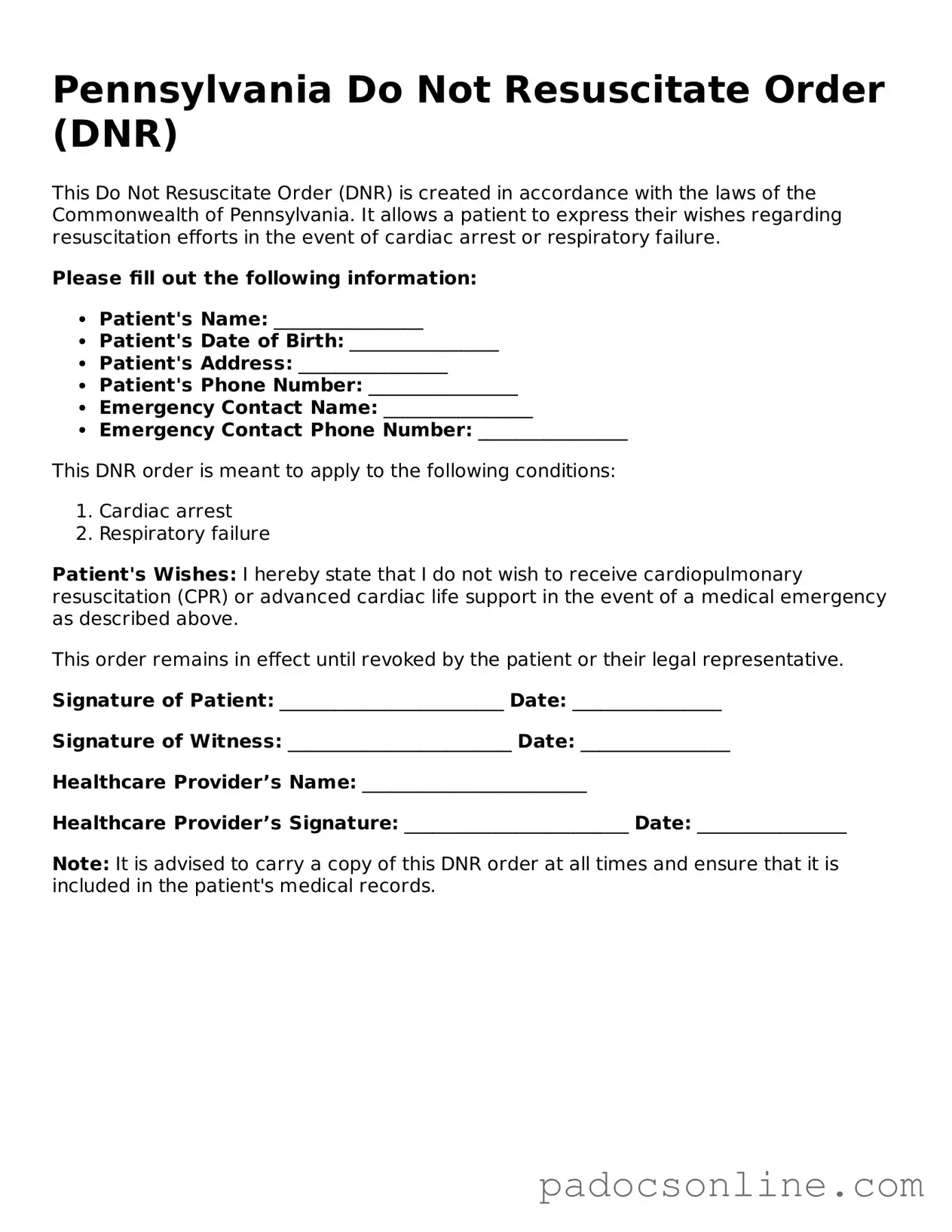Filling out the Pennsylvania Do Not Resuscitate Order (DNR) form can be a crucial step in ensuring that your healthcare wishes are respected. However, mistakes can easily occur during this process. Understanding these common errors can help you avoid complications in the future.
One common mistake is not discussing your wishes with family members or healthcare providers before completing the form. Open communication is essential. Without it, loved ones may be unaware of your preferences and might struggle to make decisions in a stressful situation.
Another frequent error is failing to sign and date the form. The DNR order must be signed by you or your authorized representative. If the form is not dated, it may not be considered valid. Always double-check that all required signatures are present.
Some people overlook the importance of including specific medical information. The DNR form should clearly state your medical condition and treatment preferences. Vague descriptions can lead to confusion and may not accurately reflect your wishes.
Additionally, using outdated forms can be a significant mistake. Always ensure you are using the most current version of the DNR order. Regulations and requirements can change, so it’s essential to have the latest form.
Another issue arises when individuals fail to provide copies of the completed form to their healthcare providers. It’s not enough to fill out the DNR order; you must also ensure that your medical team has access to it. This way, they can honor your wishes when necessary.
Some people neglect to review the form periodically. Life circumstances and health conditions can change. Regularly reviewing your DNR order ensures that it still aligns with your current wishes.
Inaccurate personal information is also a common mistake. Double-check your name, address, and other identifying details. Errors in this information can lead to complications when the form is needed.
Another mistake is not understanding the implications of a DNR order. It’s important to know that a DNR does not mean you will not receive any medical care. It only indicates that you do not want resuscitation efforts if your heart stops or you stop breathing.
Lastly, some individuals may forget to inform their emergency contacts about the DNR order. This step is crucial, as emergency personnel need to be aware of your wishes. Make sure those close to you understand your decisions and where to find the form.
By avoiding these common mistakes, you can ensure that your Pennsylvania Do Not Resuscitate Order accurately reflects your wishes and is honored when the time comes.
